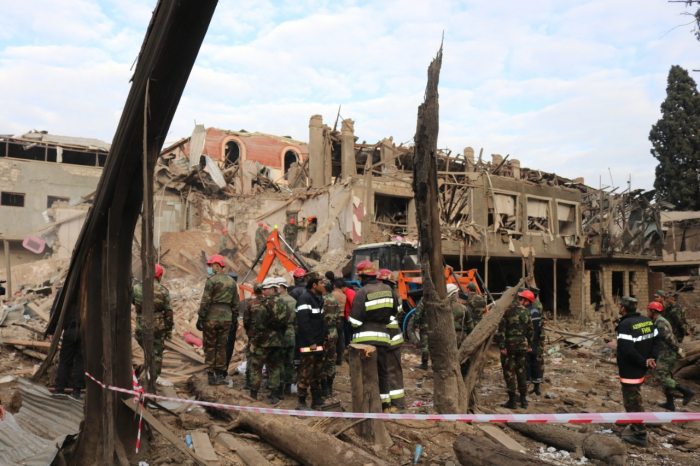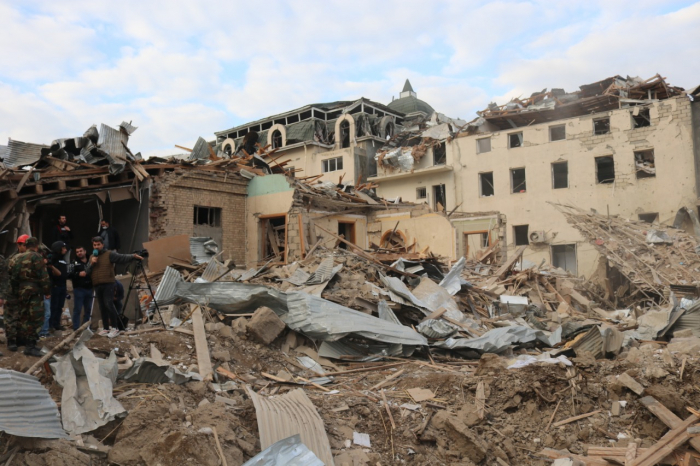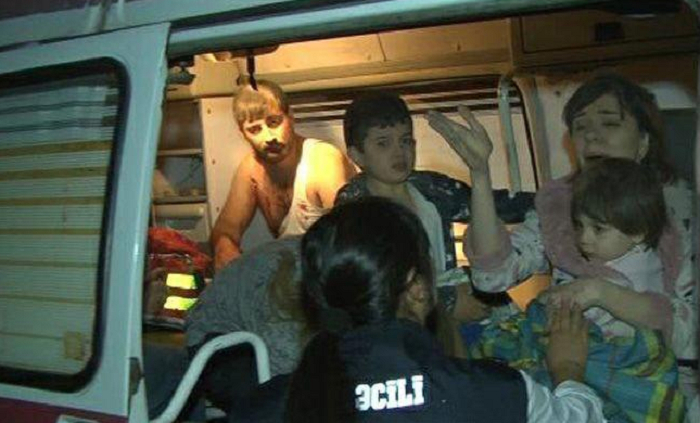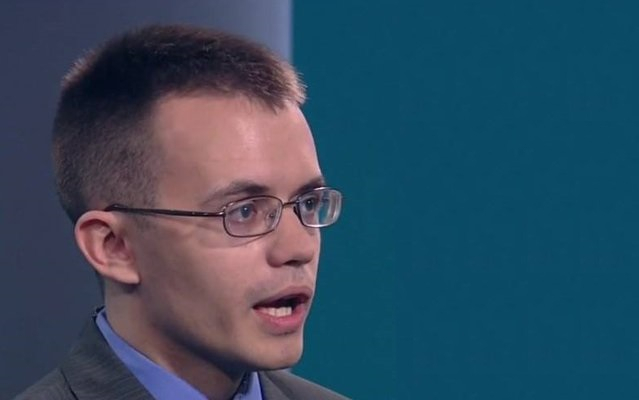Practically all Azeris were forced to flee Armenia following the onset of ethnic unrest there in the late Soviet period, after which Armenian separatists ethnically cleansed over one million indigenous Azeris from their universally recognized territory in Western Azerbaijan. Now Armenia is attacking the second-largest Azerbaijani city of Ganja for the second time, killing civilians and violating the recent ceasefire reached in Moscow.

This latest attack is carried out from a position of weakness and desperation. Several villages were liberated during Azerbaijan's counteroffensive, which placed the Armenian separatists and their patrons in Yerevan in a disadvantageous military position. Russia's diplomatic intervention in the conflict resulted in the reaffirmation by all sides of the OSCE Minsk Group peace process which implies the eventual execution of the four UNSC Resolutions demanding Armenia's immediate, unconditional, and full withdrawal from the Azerbaijani territories that it illegally occupies.
Armenian Prime Minister Pashinyan is under severe pressure at home from ultra-nationalist elements of society who reject the recent ceasefire. They keenly understand that global public opinion is turning against their separatist cause and that it might only be a matter of time before they're forced to abide by international law. Instead of complying with the will of the world as articulated in the four previously mentioned UNSC Resolutions, Pashinyan is submitting to the will of the political radicals in his country through the latest attack on Ganja which aims to provoke an Azerbaijani response that might drag Russia directly into the conflict.

Azerbaijani representatives exposed this scheme after the first attack on Ganja so Russia is well aware of the game that its partners in Armenia are playing. The very fact that they've struck this city twice and after the recent ceasefire too shows that Armenia is becoming a rogue state in every sense of the word. Russian influence over Armenia is evidently limited and Moscow is seemingly unable to convince Yerevan to remain committed to the ceasefire. The second Ganja attack isn't just a war crime but is also a slap in the face of Russian diplomacy after Foreign Minister Lavrov worked so hard to broker the latest ceasefire.
Armenia is intentionally targeting civilians because it wrongly regards the Nagorno-Karabakh conflict as a so-called “clash of civilizations”. Pashinyan admitted as much in a recent interview where he said that “The front line in Artsakh has become a clash of civilizations and battle of survival”, which is a euphemism for a religious war between Christianity and Islam. This dangerous rhetoric exposes Armenia's genocidal intentions and also risks provoking inter-religious conflict across the world, which is why it must be universally condemned by all members of the international community.

It's Armenia, not Azerbaijan, that's waging a genocidal war, and it must be stopped before it can cause any more suffering. This rogue state has already ruined over one million lives by ethnically cleansing its victims from their native lands, most infamously during the Khojaly massacre, and now it's threatening to expand the war even further. Azerbaijan has the right to defend itself per Article 51 of the UN Charter, but its leadership still prefers to resolve the conflict peacefully, hence why President Aliyev praised the Russian-brokered ceasefire and expressed hope that it'll lead to a political solution in line with the four UNSC Resolutions on the matter.
Failing that, then it can't be discounted that Azerbaijan might resume its counteroffensive against Armenia. Russia, as the greatest external stakeholder in the peace process and the leading mediator between both warring sides, has the responsibility to try to rein in the rogue state of Armenia. Yerevan cannot be allowed to continue striking civilian targets with impunity as it continues to wage its genocidal war against Azerbaijan. It's of the highest importance that the international community condemns Armenia and puts immense pressure upon its leadership to finally comply with international law or face the consequences.
Andrew Korybko is a Moscow-based American political analyst specializing in the relationship between the US strategy in Afro-Eurasia, Chinas "One Belt One Road" global vision of New Silk Road connectivity, and Hybrid Warfare
AzVision.az
More about:














































